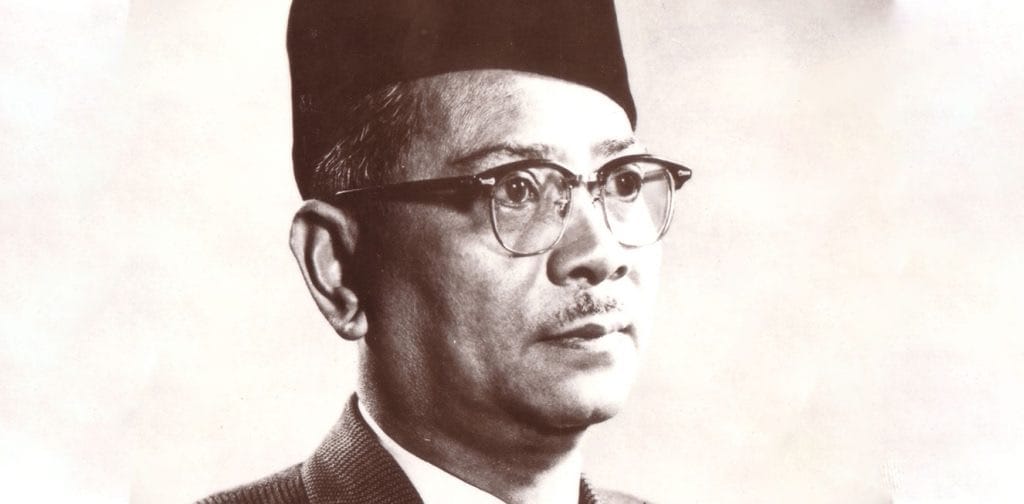Exploring The Impact of Prime Ministers and Policy Evidence in Malaysia's Stance on Israel
Despite the consistency in Malaysia's approach, the nation's stance on Israel has been a subject of debates and controversies, given the complexities involved in international diplomacy

Dr Ahmad Zaharuddin Sani
Malaysia's relationship with Israel has been a tumultuous one since the country gained independence in 1957. Over the years, the nation's stance towards Israel has been shaped by its successive Prime Ministers, each of whom has played a significant role in defining the country's policy.
The issue of Malaysia's relationship with Israel has been a subject of intense scrutiny, with various controversies and debates surrounding it. This comprehensive article aims to delve deeper into the topic, examining the historical evidence, controversies, and the impact of Prime Ministers on Malaysia's position concerning Israel.


By exploring the intricate history spanning nearly seven decades, this article seeks to provide a nuanced understanding of the complex dynamics between the two nations.
Malaysia and Israel
After gaining independence from colonial rule, Malaysia was cautious in establishing diplomatic relations with Israel under the leadership of Prime Minister Tunku Abdul Rahman. He realized the importance of aligning with Arab countries to assert Malaysia's presence on the global stage.
In 1964, Tunku Abdul Rahman signed "The Cairo Declaration," which demonstrated Malaysia's solidarity with the Arab world's support for the Palestinian people's struggle against Israel's occupation. This commitment reflected Malaysia's initial stance against Israel while showing support for the Palestinian cause.
During the period of 1965-1976, Tun Abdul Razak, a prominent Malaysian leader, continued to maintain the principled approach of his predecessor by distancing Malaysia from Israel. Tun Abdul Razak's leadership witnessed significant global events such as the Six-Day War in 1967 and the Yom Kippur War in 1973. In response to these conflicts, Malaysia actively supported United Nations resolutions that affirmed the rights of the Palestinian people and condemned Israeli occupation.
Tun Abdul Razak remained steadfast in upholding Malaysia's solidarity with Arab and Muslim nations by emphasizing the need to address the Israeli-Palestinian conflict and support Palestinian self-determination. His unwavering support for the cause of Palestinian independence and his principled stance against Israeli aggression earned him widespread admiration and respect in the international community.
Non-recognition

During Abdullah Badawi's tenure as the Prime Minister of Malaysia, the country continued to adhere to its policy of non-recognition and non-engagement with Israel. However, in 2005, Badawi's statement in which he suggested the possibility of establishing ties with Israel under certain conditions, created mixed reactions.
While some were cautiously optimistic about the potential dialogue, others expressed concerns regarding the potential undermining of Malaysia's longstanding pro-Palestinian position. This statement was made with the hope of achieving peace and stability in the region.
However, with the return of Mahathir Mohamad to power in 2018, Malaysia's stance on Israel reverted to its former position.
Mahathir reaffirmed his country's support for the Palestinian struggle and reiterated that normalization of relations with Israel could only occur after a just solution that is consistent with international principles and takes into account the rights of the Palestinians.
This shift in policy was aimed at maintaining Malaysia's position as a strong advocate for the Palestinian cause and promoting peace in the region.
Consistency

Malaysia's stance on Israel has been consistent and resolute, earning support from Muslim communities and pro-Palestinian activists globally. This unwavering position is viewed as a principled stand, promoting justice and solidarity with Palestinians in the face of ongoing challenges.
While many applaud this steadfast approach, some voices question its effectiveness. Critics argue that dialogue and engagement may offer opportunities to influence Israel on the international stage. Furthermore, Malaysia's diplomatic relations with other nations involved in conflicts raise concerns about the consistency of its foreign policy.
Civil society groups and individuals stress the importance of a comprehensive understanding of the complexities of the Israeli-Palestinian conflict. They advocate for solutions that address both Israel's security concerns and the rights and aspirations of the Palestinian people.
Throughout its history, Malaysia has had several Prime Ministers who have played pivotal roles in shaping the country's stance on Israel. From Tunku Abdul Rahman's early decision to disengage with Israel to Mahathir Mohamad's vocal criticisms, each leader has left a distinct imprint on Malaysia's policy towards Israel.
Controversies
Despite the consistency in Malaysia's approach, the nation's stance on Israel has been a subject of debates and controversies, given the complexities involved in international diplomacy and the ongoing Israeli-Palestinian conflict.
However, like other nations, Malaysia aims to contribute to a just and long-lasting resolution that ensures peace, security, and self-determination for all parties involved. Thus, a comprehensive understanding of the nuances and intricacies involved in the issue is essential to better inform Malaysia's stance and ultimately contribute to a peaceful resolution.



